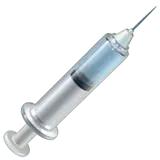Powdery mildew


CLASSIFICATION
Fungi, Ascomycetes, Pezizomycotina, Leotiomycetes, Erysiphaceae
ABOUT
Powdery mildew is an infectious fungal disease caused by different species from the Erysiphaceae family. It causes characteristic powdery spots on the leaves, stems, fruits, and other parts of the plant.
How to treat?
 Biological
BiologicalWash the spores from a susceptible plant with a stream of water.
If possible remove and destroy the infected parts of the plant. Remove infected parts during the vegetative growth period and infected buds during the vegetative dormancy.
Apply ecological products for plant protection (e.g. potassium bicarbonate, neem oil, baking soda).
Introduce natural enemies - predators, parasites, or diseases (e.g. bacteria Bacillus amyloliquefaciens, Bacillus pumilus).
 Chemical
ChemicalIf necessary, apply a fungicide. Powdery mildew on deciduous trees usually does little damage, so chemical control is not needed.
If necessary, apply fungicide containing penthiopyrad (GHS09: Environmental hazard) on apple trees and pear trees.
If necessary, apply fungicide containing tebuconazole (GHS07: Harmful, GHS08: Health hazard, GHS09: Environmental hazard) (on ornamentals).
 Disease prevention
Disease preventionGrow the plants in sunny places with good air ventilation.
Improve the air circulation around the plant (e.g. by pruning excess foliage or increasing the spacing between plants).
Avoid excess nitrogen fertilization.
Avoid prolonged wetting of the leaves, which can be caused e.g. by overhead irrigation.
Use resistant species and cultivars as well as healthy, certified seeds and seedlings.